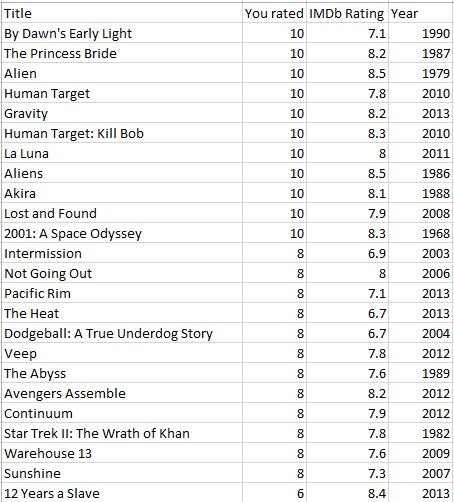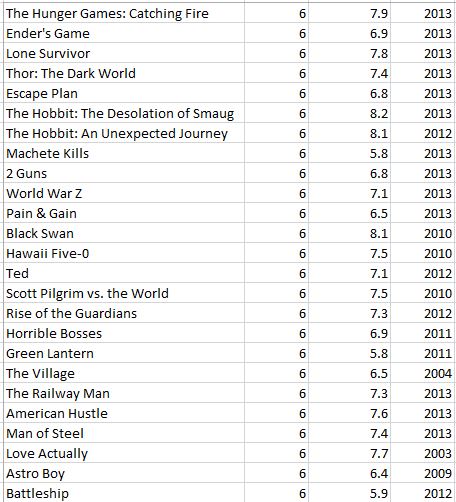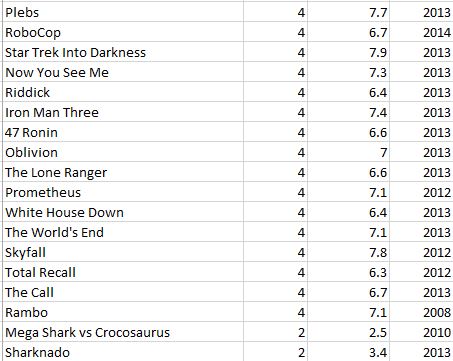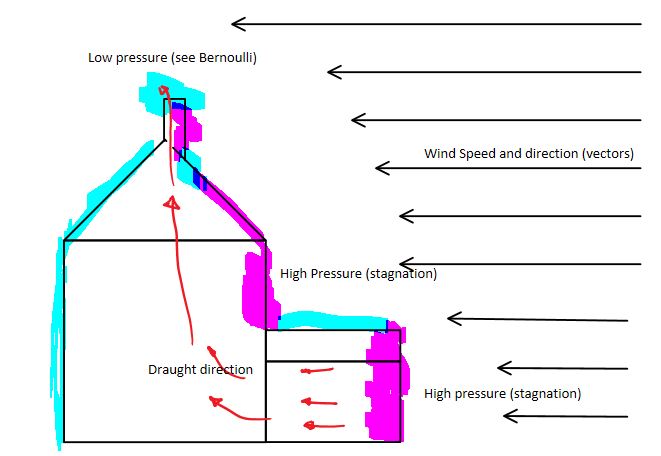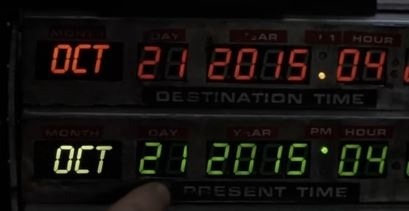I am considering re-adjusting my IMDB ratings. When I see a film I tend to give it a rating on IMDB [btw – I remember IMDB when it was a little web project at Cardiff University]. I am slowly coming to the conclusion that I need to change my scoring system for these films and I am actually considering using even numbers only.
I have been worrying about what the difference between a 5 or a 6 might be. Also, Restricting the scoring to just the even numbers will mean that I have to consider the film and try to be more realistic. If I currently give something a 6 or 7 what does that difference show? What would be the difference between a 3 or a 4? I just don’t know. The scale of 0 to 10 seems too big for these things [especially as I’m not taking the mean of lots of scores].
I also think there is a human tendency to give middle of the road scores when we think something is average or even below par. If you have seen Come Dine With Me, you will be aware [or will be after this] that when the contestants don’t really know how to score a meal or want average then they tend to plump for a 6 or 7. Their words describe an evening that is probably below par but their score is one that is not meant to offend [6 or 7] but is really rather damning. I want to call this the “Come Dine With Me Fallacy”, which would mean that sub-optimal experiences receive scores that are perceived as “average”, rather than risk offend or come across as a nasty [but realistic] person.
So, at some point in the near future I am going to adjust my IMDB ratings. I will only use the even numbers [thoughts: I need to check if I can score a zero].
Have returned: I can’t score a zero on IMDB. That is not good. So, the default scoring system means that even the poorest film ever made will receive one star. This causes some problems. But I shall try to get around that. So, my new system goes:
- 10 Stars – I loved this film, I would pay to see it again in the cinema and maybe buy it to keep [Apocalypse Now, Star Wars, The Fifth Element].
- 8 Stars – A good film which I
certainlyprobably will watch again [The Rock, Independence Day]. - 6 Stars – While it was enjoyable at the time it is not a film I will spend the time to watch again [The Railway Man, Hunger Games], this might include films I think were really good critically but not ones I’d see again.
- 4 Stars – I only got to the end of the film to see what happened but I’ll admit it was poorly made and rubbish, maybe this is a good “bad film” [Titanic II]
- 2 Stars – [lowest possible score] I gave up watching this film before it had finished. I hated it [Sharknado]. I left the cinema [I would have left the cinema had someone not been in my way – Van Helsing].
I shall update this or write a new communication once I have updated my scores using this crib sheet and let you know which films I struggled to pigeon-hole.
Addendum
I have just started looking at my IMDB ratings and have decided that I will use the above scoring system BUT please understand that I am now using the “Will I watch again?” criteria and this is a personal thing, very subjective. I am able to spot a “good critically acclaimed film” but think my ratings should reflect my intentions about the film and not what I think the wider world will think (1st March 2014).
Further Addenda
I have just realised that this means that any film I enjoyed but won’t intentionally watch again ends up being scored a “6”. Oh, the irony, given I complained about the “Come Dine With Me” fallacy earlier. But, in my favour, I have declared that my scoring system will be 2,4,6,8,10. This means that a score of 6 is the mean and median of the scoring values. When reading my film scores you need to understand my system which I have at least tried to communicate here.
Even More Addenda
These are my latest (updated) scores using the system explained above. I don’t care if you think otherwise about some of the ratings.
Human Target appears twice because I rated an individual episode as well as the whole series.

